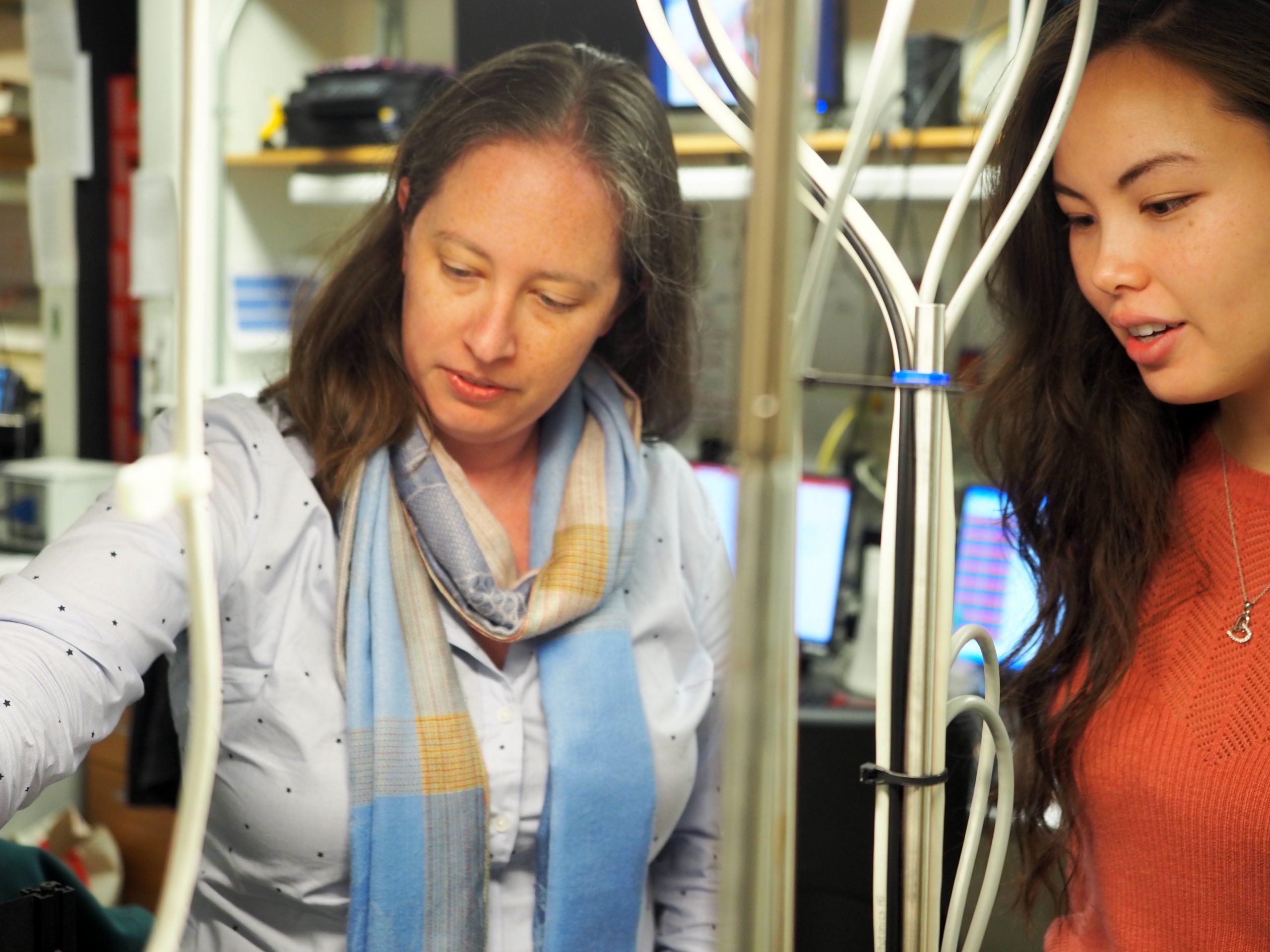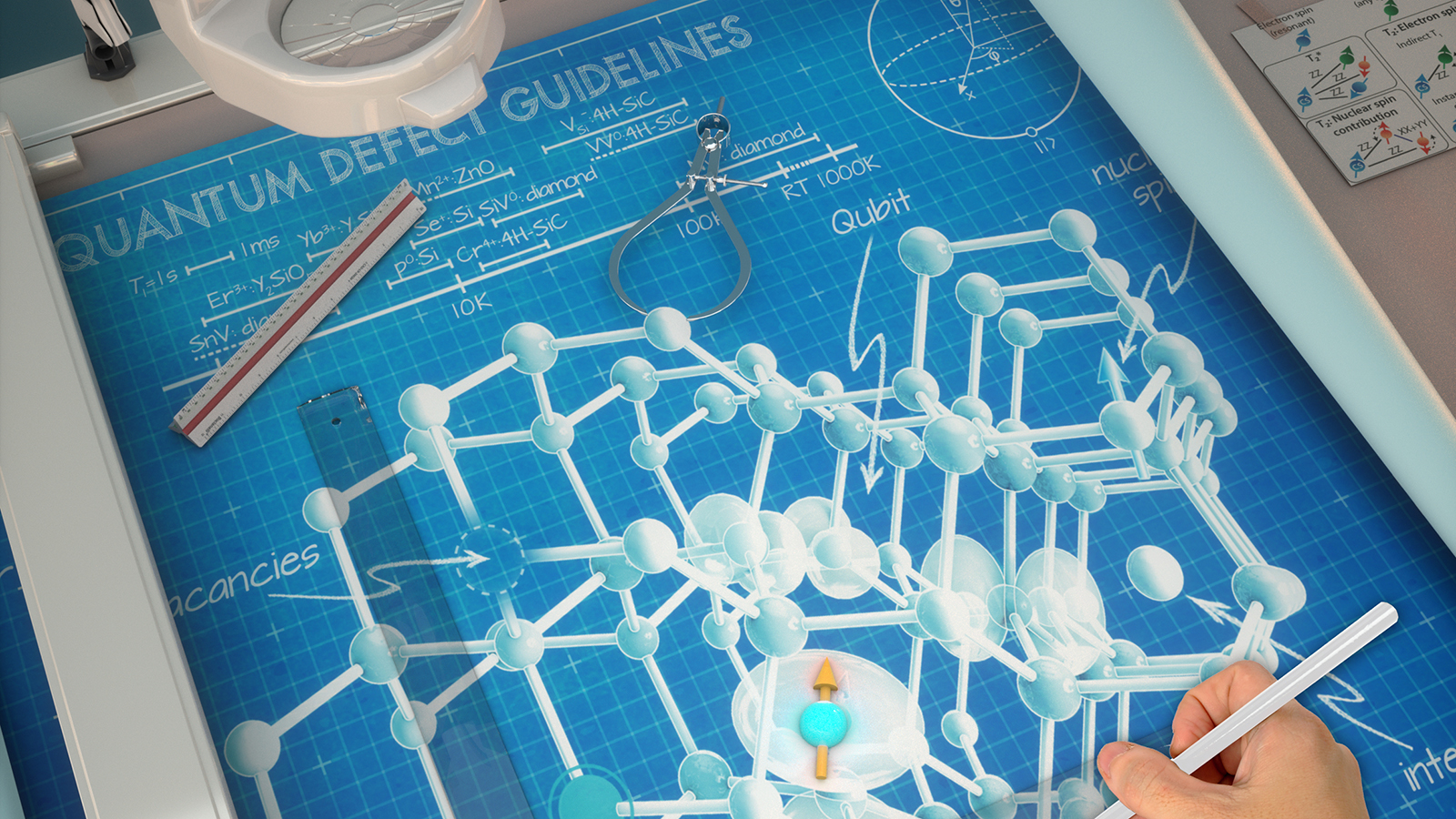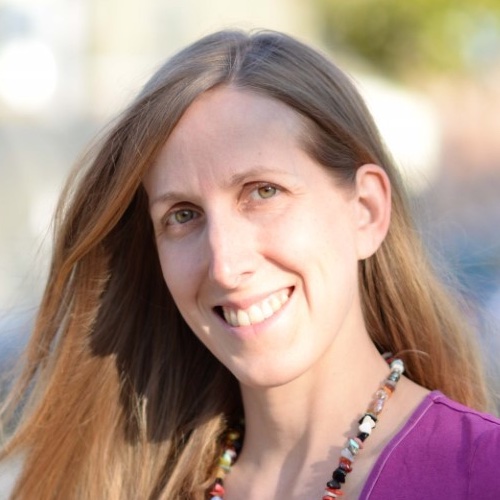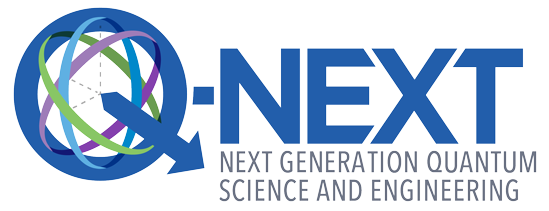qubits
-
A mathematical shortcut for determining quantum information lifetimes
From Tohoku University: Having crunched the numbers on the quantum properties of 12,000 elements and compounds, researchers supported by Q-NEXT have published a new equation for approximating the length of time materials can maintain quantum information, called 'coherence time.' Read More
-
New hardware created by Stanford team shows a way to develop delicate quantum technologies based on tiny mechanical devices
From Stanford University: By bringing the benefits of mechanical devices into the quantum realm, Stanford researchers aim to create advanced computing and sensing devices. Read More
-
U of C researchers make quantum breakthrough
From Crain's Chicago Business: University of Chicago researchers say they’ve made a breakthrough that might help bring quantum computing closer to reality. Researchers achieved a record time for memory, or “coherence,” in quantum bits, or qubits, of more than 5 seconds. Scientists are trying to harness quantum mechanics for the next generation of computing. One of the challenges is that particles maintain their quantum states, and their ability to store information, only briefly. Read More
-

Researchers set record by preserving quantum states for more than 5 seconds
A team of researchers at Argonne National Laboratory and the University of Chicago achieved two breakthroughs to overcome common challenges for quantum systems. They were able to read out their qubit on demand and then keep the quantum state intact for over five seconds — a new record for this class of devices. Read More
-
The race to build a fault-tolerant superconducting quantum computer
From IEEE Spectrum: Amazon, Google, and IBM are all pursuing different strategies to reduce error rates. Q-NEXT collaborator Oskar Painter of Caltech and team find they can 'make cat qubits that are highly resistant to bit flip, where a qubit flips from one state to another, one of two main sources of error a superconducting qubit can have.' Read More
-
More than one way to make a qubit
From Symmetry: Q-NEXT collaborators F. Joseph Heremans and Paul Welander appear in this Symmetry Magazine article on the various ways to make a qubit. Read More
-

Elizabeth Goldschmidt: creating quantum memories
Goldschmidt’s lab is a playground for controlling particles of light to build new ways to store quantum information. A professor at the University of Illinois Urbana-Champaign, she’s helping develop the quantum communication technologies of the future. Read More
-

Argonne- and UChicago-led research team highlighted in special issue on quantum systems
A set of guidelines that describes the use and development of a promising class of quantum materials is featured on the cover of this month’s Nature Review Materials. Read More
-

Convergence with quantum characterization
We’re part of the way through Q-NEXT’s first year, and the Extreme Scale Characterization Thrust has made significant strides in our mission to image and identify qubit structure, dynamics, and sources of decoherence — from the single-spin qubit all the way to the system level. Read More
In the News
See all In the News-
The best qubits for quantum computing might just be atoms
From Quanta: Mark Saffman of the University of Wisconsin–Madison and Infleqtion is featured in this comprehensive overview of neutral-atom qubit research. Read More
-
How quantum computing could help us understand the universe
From PBS NewsHour: David Awschalom appears in this piece on the next generation of computing, one that will be far more sophisticated and dependent on understanding the subatomic nature of the universe. Read More
-
PME-led research into protein-based qubits earns $2.75M Moore Foundation grant
Bolstered by a new $2.75 million grant from the Gordon & Betty Moore Foundation, a team led by University of Chicago's Peter Maurer will soon study qubits made from protein. Read More
-
Infleqtion unveils 5-year quantum computing roadmap, advancing plans to commercialize quantum at scale
From Quantum Insider: Infleqtion shares a broad business update, including the first look at its new 5-year quantum computing roadmap. The roadmap's centerpiece is Sqorpius, the next phase of Infleqtion’s quantum computing program. Read More
-
Bringing quantum entanglement to the people
From the National Science Foundation: NSF’S Quantum Leap Challenge Institute Hybrid Quantum Architectures and Networks at the University of Illinois Urbana-Champaign, a Q-NEXT partner, has created a working demonstration that brings entanglement between photons to a public setting for the first time. Read More
